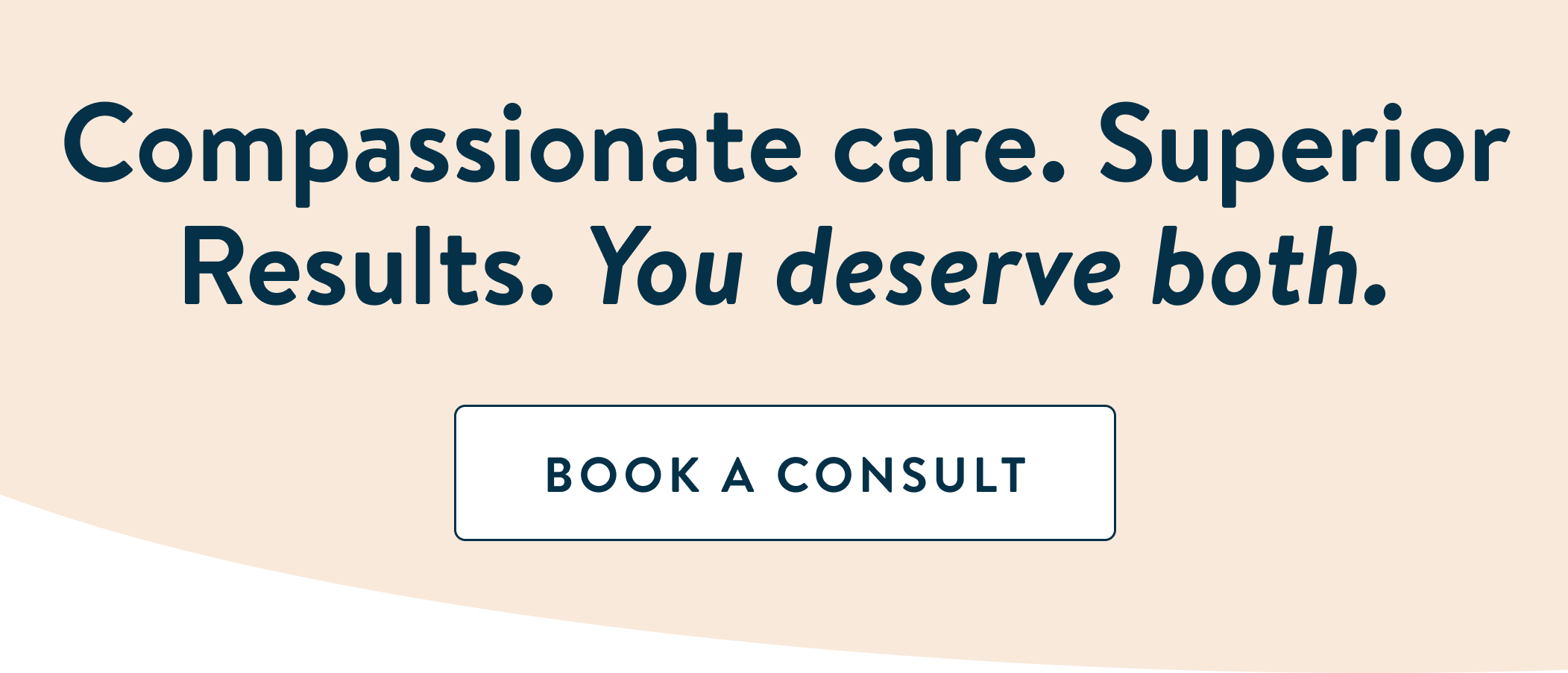
Spring Stories: Madisson’s Path to Pregnancy After Loss
There’s so much I love about our Spring Fertility family, but one thing I love the most is our patients’ willingness to share stories of resilience, vulnerability, and advocacy - so that others can learn from what they’ve experienced and feel less alone on their own journeys.
I hopped on a call with TV personality and Spring patient, Madisson, to reflect on how she navigated trying to conceive after loss, and to learn more about her fertility story and how it led her family to where they are today.
“I'll start back when I first got pregnant, which was over two years ago,” she begins, sharing the story of her first child, Elliot - who she says she loves talking about. “I got pregnant with my son Elliot, and I had a beautiful pregnancy. It was very easy for me to get pregnant, and it was a very healthy, normal, uneventful pregnancy. And then, when I was nine months pregnant, I stopped feeling him move… he had died. So at 37 weeks I was induced, and I gave birth to my son.”
After Elliot’s passing, Madisson says “the grief was so heavy” that she put aside the impact that his “physically traumatic” birth had on her and her body: “My son was gone. That was the heavier part for me. I didn't really care about my body or what was going on with it afterwards. But I think that's an important part to talk about now because what I didn't expect to follow was 18 months of infertility.”
While navigating their grief, Madisson and her husband found a path forward to honor their son and continue growing their family: “As soon as we could start trying again, we did.” She recalls expecting to get pregnant as easily this time as she had when conceiving Elliot; however, “For about 12 months we tried naturally and nothing was happening. We were going to my doctor and he was tracking my ovulation. He was like, ‘I think it's time I send you to a fertility specialist.’ So we went to a local fertility specialist.” After all the tests he performed came back “perfect,” Madisson says “he just completely wrote it off as unexplained infertility.”
I felt a little bit gas lit by everyone - friends, family, the medical community. Everyone was just like 'Oh, it's in your head.' And I knew there was something else going on.
Madisson remembers feeling frustrated and even “gas lit” at times as her doctor and loved ones dismissed her inability to get pregnant as a sign that she was still grieving and that she just needed additional time to heal. “I was really working on myself,” she tells me. “I was going to therapy, I was going to acupuncture, I was doing all of the things that I was supposed to do and I felt like I'm handling this very well and then I was just constantly being told ‘Well, it's not your time, you know, you have to grieve your baby,’ and I was like I am doing that now. So it was very frustrating. I felt a little bit gas lit by everyone - friends, family, the medical community. Everyone was just like ‘Oh, it's in your head.’ And I knew there was something else going on.”
Madisson and her husband tried one round of IUI (intrauterine insemination) before coming to the conclusion that IVF (in vitro fertilization) might be their next step. That’s when, Madisson says, they decided to get a second opinion at Spring Fertility, and met with Dr. Peter Klatsky. She remembers stepping into that initial consultation with the mentality of “I'm ready. Let's do IVF. I want this baby. Let's go.” However, upon understanding her specific case, Dr. Klatsky recommended an additional test prior to starting treatment: “He was like ‘Just throwing this out there. There might be some problems with implantation due to endometritis. You know, there's not a lot of research on it. But we like to test for that. And even if you go down the IVF route, it won't take if you have this infection.’ I'd heard of endometriosis, but this is an entirely different thing. I didn't know anything about it.
“So I did a uterine biopsy. It came back that I had a severe infection with endometritis. Dr. Klatsky put me on antibiotics. It was a 21 day dose and I took it for 10 days and then found out I was pregnant.” Madisson recently announced that she and her husband are expecting a girl in 2024.
I wasn't just a number to him.... He actually listened to me and I knew there was something else going on and he wasn't willing to just give it up to unexplained infertility.
Reflecting back on that initial consult, Madisson says “[Dr. Klatsky] was asking me questions, and he was so kind. He even used Elliot's name, which is very important to me. And it was like I wasn't just a number to him…. He actually listened to me and I knew there was something else going on and he wasn't willing to just give it up to unexplained infertility.” She adds that his focus was on the “highest success rate” when it came to creating her treatment plan: “It wasn't just about doing it. It was about doing it and getting a baby at the end. And so I really resonated with that and I was so grateful.”
In addition to helping her achieve her goal of getting pregnant, Madisson says the care she received at Spring also had a positive impact on her relationship with her body and trust in herself - something she has been working to heal since losing Elliot: “I did have this disconnect with my body after my loss. And now I'm able to be like, ‘It's okay. I'm okay. My body's okay.’ I can love my body again and I can kind of recreate that trust. I don't know that we're totally there yet… but had I never gotten a diagnosis I would still be like ‘what is happening?’ I know so many women never get answers, and that's why I so appreciate Spring because they're doing research.”
Madisson and I talk about how, as women, there is so much we aren’t taught about our reproductive health - information that we too often don’t learn until we’re living through an experience with infertility. After our call, Madisson’s husband asked to contribute his perspective. She wrote me: “You and I talked about how much women don’t know about our own reproductive systems, but I think it’s important to note that men know even less. With Dr. Klatsky taking the time to explain everything, my husband felt he left that conversation with knowledge of how to better support me. I think partners are so often left feeling helpless when it comes to loss and infertility. So feeling included in the process and having tools and knowledge is so powerful.”
To share some of those tools and knowledge, I ask Madisson for advice and first-hand perspective on behalf of anyone reading this who resonates with Madisson’s story:
While navigating pregnancy loss and a subsequent fertility diagnosis, what resources did you turn to to make sure you were supporting your mental and emotional health?
“The very first thing that I did after my loss was join a support group with other women who had experienced loss because when you are experiencing this - when your baby dies - you feel so alone, and the only other people you really can connect to are other women, other families who have gone through this. I joined a group through Return to Zero, which was wonderful. I know that Spring offers support groups; I think that is incredible.
“Whether you’re going through IVF, experiencing infertility, experiencing loss. It can be such a lonely experience, especially as a woman when you feel like this defines you sometimes - especially if you want to be a mom, it can consume your life. And I think that meeting other women who are experiencing the same thing is so important. So yeah, I have to say that for me, having other women around me who know this journey is huge.”
What questions should a couple or individual ask at their initial consultation, to help find the right clinic and doctor for them?
“I think that's the scary part because you don't know what to ask, right? So, I think what you really have to focus on is just the feeling you get. Do you leave that consult with so many more questions? Or are you leaving like ‘Oh, I've learned so much. I feel really good.’ Because there are times when I've left the doctor and I'm like, ‘Oh, I feel more anxious than I did going in.’ But I knew with Spring… and being able to trust someone else with your body, with your mental state - it's just such a relief having that feeling.”
She adds, “Just set up the consultation and then they’re there for you when you're ready… I wish I had gone so much earlier. But I'm grateful I went when I did.”
What was your experience with IUI, and exploring that option as a first step in treatment?
“Really, I'm glad that I gave it a chance. Just because it was so much cheaper, so much more accessible. I didn't put too much on my body. I got to try, but ultimately it did not work for me. And now we know why - because I had an infection. But I think it is a good first step, even if just for peace of mind to rule that out. Especially if it's unexplained and you don't know the reason why you're not getting pregnant.”
I thank Madisson for her openness in using the incredible platform she’s created to tell her family’s story - one we’re honored to have been a small part of. She concludes: “I just want to say I'm so glad to have met Spring. You honestly have changed the course of my life. And I'm just so grateful. It's not the path that we thought we would go down with Spring - but it's a really great one.”
